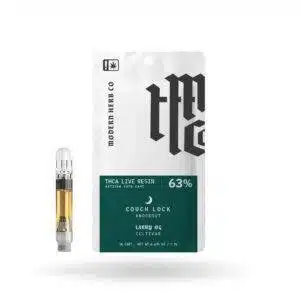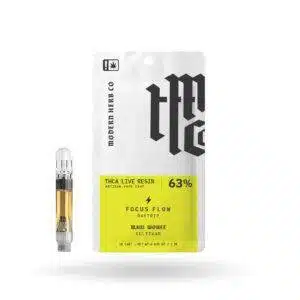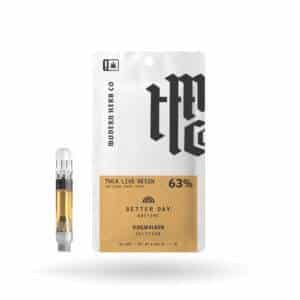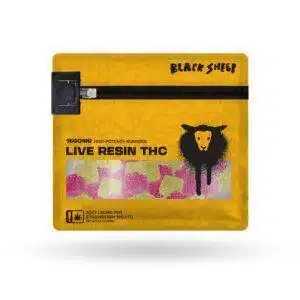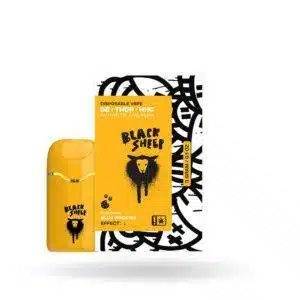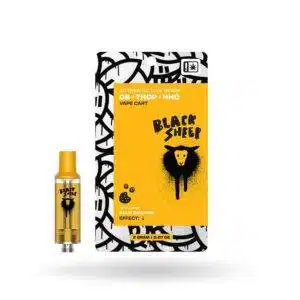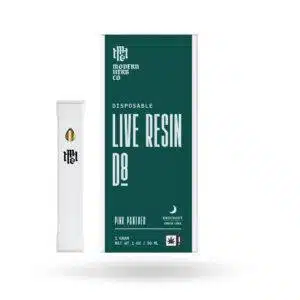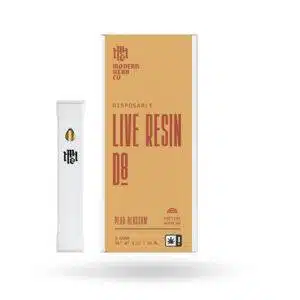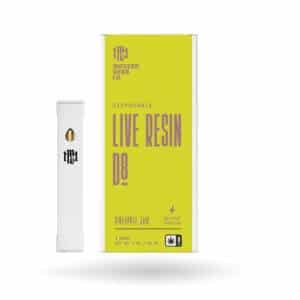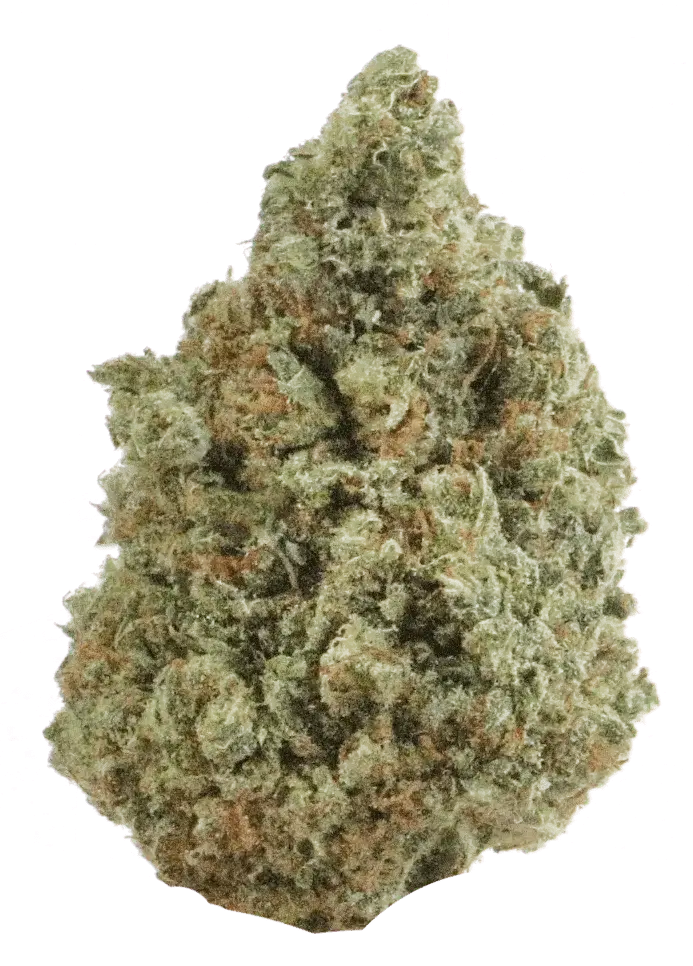Is THCa Legal?
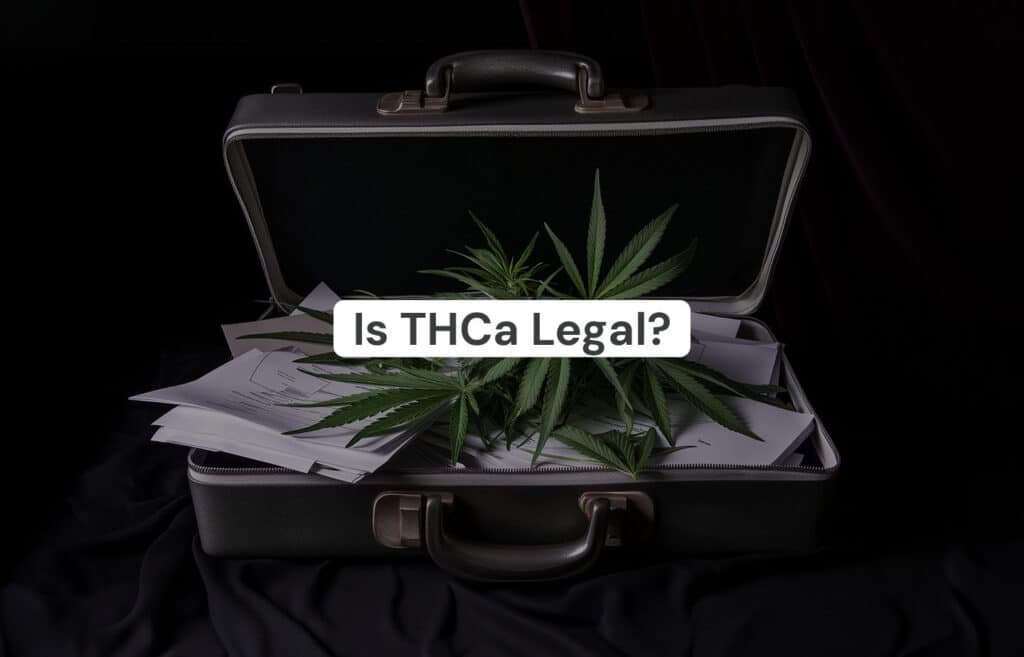
Navigating the legal labyrinth of cannabis laws can be as complex as the science behind the plant itself. One substance that has gained attention lately is Tetrahydrocannabinolic acid (THCa). In contrast to its widely recognized relative, THC, THCa is a non-psychoactive precursor present in unprocessed cannabis plants. Is THCa legal, though? This thorough guide delves deeply into THCa’s legal situation, clarifying whether it is allowed in every state in the union and offering explanations for why it might not be as legal as other cannabinoids.
Types of THC
- Types of THC
- Is THCa Legal?
-
The Legality of THCa in Various States of America
- Is THCA Legal in Florida?
- Is THCA Legal in California?
- Is THCA Legal in Alabama?
- Is THCA Legal in Alaska?
- Is THCA Legal in Arizona?
- Is THCA Legal in Colorado?
- Is THCA Legal in Connecticut?
- Is THCA Legal in Delaware?
- Is THCA Legal in Georgia?
- Is THCA Legal in Hawaii?
- Is THCA Legal in Illinois?
- Is THCA Legal in Indiana?
- Is THCA Legal in Kansas?
- Is THCA Legal in Kentucky?
- Is THCA Legal in Louisiana?
- Is THCA Legal in Maine?
- Is THCA Legal in Maryland?
- Is THCA Legal in Michigan?
- Is THCA Legal in Missouri?
- Is THCA Legal in Nebraska?
- Is THCA Legal in New Hampshire?
- Is THCA Legal in New Jersey?
- Is THCA Legal in New Mexico?
- Is THCA Legal in New York?
- Is THCA Legal in North Carolina?
- Is THCA Legal in North Dakota?
- Is THCA Legal in Ohio?
- Is THCA Legal in Oklahoma?
- Is THCA Legal in Pennsylvania?
- Is THCA Legal in South Carolina?
- Is THCA Legal in South Dakota?
- Is THCA Legal in Tennessee?
- Is THCA Legal in Texas?
- Is THCA Legal in Utah?
- Is THCA Legal in Vermont?
- Is THCA Legal in Virginia?
- Is THCA Legal in Washington?
- Is THCA Legal in West Virginia?
- Is THCA Legal in Wisconsin?
- Is THCA Legal in Wyoming?
- Is THCA Legal in Arkansas?
- Is THCA Legal in Idaho?
- Is THCA Legal in Massachusetts?
- Is THCA Legal in Minnesota?
- Is THCA Legal in Montana?
- Is THCA Legal in Oregon?
- Is THCA Legal in Rhode Island?
- Where Is THC-A Illegal?
- How Much THCa is Legal?
- Where to Buy THCa Products Online?
- Conclusion
Cannabis contains a spectrum of compounds, each with unique properties and legal statuses. Before we explore THCa in-depth, let’s understand the different types of THC:
THCa:
You’ll find THCa, a non-psychoactive cannabinoid, in the raw cannabis plant before it undergoes any processing. In contrast to other cannabinoids, THCa molecules do not bind to your CNS’s CB1 or CB2 receptors. This compound is actually a precursor to THC (Tetrahydrocannabinol), requiring heat through decarboxylation to transform into the psychoactive THC. In many American states, it is legal to purchase and sell THCa products containing it because it is not psychoactive.
THCv:
THCv, a cannabinoid in cannabis plants, shares a structural similarity with THC but affects you differently. It’s thought that this might be due to its shorter chains, which can’t bind to receptors in your central nervous system.
THCp:
THCp, a lesser-known cannabinoid, hasn’t been extensively studied yet. You might find it interesting to know that it’s considered similar to THC, possibly even stronger, but more research is necessary to truly grasp its impacts and possible uses.
-
THCP Live Resin Quad Blend Gummies$6.00 – $45.00
-
Live Resin THCp Disposable: 3g$40.00
-
Live Resin THCp Vape Cartridge: 2g$30.00
Delta-9 THC:
Delta-9 THC stands out as the most prevalent and most popular compound in the cannabis plant, present in both the male (stamen) and female (pistil) parts of marijuana or hemp plants. Because Delta-9 THC alters perceptions, many state laws restrict the sale of Delta-9 THC extracted from marijuana. However, it is legal at the federal level if it comes from hemp and the total Delta-9 THC content does not go above 0.3% by dry weight. Despite its mind-altering effects, researchers are currently exploring Delta-9 THC for its potential benefits.
Delta-8 THC:
As the Cannabis sativa plant matures, Delta-9 THC transforms into Delta-8 THC through oxidation. It’s accurate to consider Delta-8 THC a byproduct of Delta-9 THC. This conversion occurs at a very slow pace. Therefore, the typical process for generating Delta-8 THC involves converting Delta-9 THC into cannabidiol (CBD). Though believed to be less potent than Delta-9 THC, delta-8 THC interacts with both CB1 and CB2 receptors in your brain. However, consuming too much can still lead to potential problems, but that can be said for anything that is used too much. Delta 8 is probably the third most famous cannabinoid after CBD.
-
Sale Product on saleLive Resin Delta 8 Disposable: Knockout
$35.00$24.99 -
Sale Product on saleLive Resin Delta 8 Disposable: Anytime
$35.00$24.99Rated 5.00 out of 5 based on 1 customer rating -
Sale Product on saleLive Resin Delta 8 Disposable: Daytrip
$35.00$24.99
Delta-10 THC:
Delta-10 is a variation of Delta-9 THC, which shares the same atomic composition but is arranged differently. You won’t often find Delta-10 THC naturally occurring. Therefore, it’s synthetically produced in labs for industrial and commercial use. Presently, there’s limited information on Delta-10 THC, and it occupies a legal gray area under the federal laws of many states.
Is THCa Legal?
The Farm Bill of 2018 brought about a number of significant changes, one of which was the legalization of industrial hemp. According to the measure, industrial hemp, which is a type of cannabis plant that contains a low amount of THC, was removed from the list of drugs that are considered to be restricted substances. A significant factor that helps differentiate restricted marijuana from legal hemp is the total content of THC. Because of this development, the cannabis business, which is currently experiencing tremendous growth, was able to gain access to a wide variety of hemp-derived cannabinoid products, including hemp products, CBD oils, textiles, and more.
The Legality of THCa in Various States of America
THCa’s legal status can differ wildly across the U.S., with each state having its own set of regulations. Here, we will outline the legality of THCa in key states, highlighting where it’s legal, restricted, or outright banned. This section provides guidance for navigating the intricate patchwork of cannabis laws in the US.
Is THCA Legal in Florida?
Yes, if the total delta-9 THC content, when measured on a dry weight basis, is not greater than 0.3 percent. That is what the State Hemp Program in Florida requires of hemp. However, as of now, the potency regulations for hemp products do not take THCA concentration into account in Florida.
Is THCA Legal in California?
Yes. The California Industrial Hemp Law defines “a percentage of the content of THC that is equal to or less than 0.3%,” in accordance with federal guidelines.
Is THCA Legal in Alabama?
Yes. All hemp products with less than 0.3% Delta 9-THC are legal under Alabama Code 2-8-381, in compliance with federal law.
Is THCA Legal in Alaska?
Yes. In accordance with the 2018 Farm Bill, Alaska has established a permanent pilot program for hemp with the recent signing of Senate Bill 27. As for recreational users, adults, and card-carrying medicinal patients and caregivers, cannabis is legal in Alaska.
Is THCA Legal in Arizona?
Yes. Hemp-derived products sold in Arizona are obligated by federal law to comprise no more than 0.3% Delta 9-THC on a dry weight basis.
Is THCA Legal in Colorado?
Yes. In line with federal law, Senate Bill 14-184 of Colorado states that industrial hemp products with a content of no more than 0.3% by dry weight of delta-9 tetrahydrocannabinol (THC) are permitted.
Is THCA Legal in Connecticut?
Connecticut probably has no laws against THCA. The destruction of hemp with more than 0.3% THC, whether voluntary or ordered, is to be paid for by the licensee, according to Connecticut Substitute Senate Bill No. 893.
Is THCA Legal in Delaware?
Yes. Products containing THCA up to 0.3% Delta-9 THC are permitted in Delaware, according to the Farm Bill.
Is THCA Legal in Georgia?
Yes, possessing THCA is considered to be within the law. House Bill 213 of Georgia mandates that hemp plants, “whether growing or not,” stay within the legally mandated 0.3% THC concentration limit.
Is THCA Legal in Hawaii?
Yes. Hawaii has legalized industrial hemp products up to a tetrahydrocannabinol concentration permitted by federal law or up to a delta-9 tetrahydrocannabinol concentration of more than 0.3% on a dry weight basis, whichever is higher.
Is THCA Legal in Illinois?
Yes, consistent with federal law, the Illinois Industrial Hemp Act defines “industrial hemp” as any intermediate or finished product derived from or made from hemp, with a concentration of delta-9 tetrahydrocannabinol not exceeding 0.3% on a dry weight basis.
Is THCA Legal in Indiana?
Yes, according to Senate Enrolled Act 516 of Indiana, hemp must test less than 0.3% THC; therefore, THCA products that satisfy this requirement are allowed.
Is THCA Legal in Kansas?
Yes. Senate Bill 263, passed by the Kansas legislature, legalizes, with a dry weight base concentration of no more than 0.3%, all components and varieties of the cannabis sativa L plant, regardless of whether they are grown or not.
Is THCA Legal in Kentucky?
Yes. Under KRS 260850 to 260.869 Industrial Hemp, hemp products containing less than 0.3% Delta-9 THC are permitted in Kentucky.
Is THCA Legal in Louisiana?
Yes. Any form of industrial hemp, including the seeds, oils, extracts, cannabinoids, isomers, acids, salts, and salts of isomers, is legal in Louisiana as long as the ratio of delta-9 tetrahydrocannabinol (THC) to dry weight is less than 0.3%.
Is THCA Legal in Maine?
Yes, absolutely. A cannabis cultivar with a dry weight basis delta-9-tetrahydrocannabinol (THC) content of less than 0.3% has recently received approval in Maine.
Is THCA Legal in Maryland?
Yes, in a measure that does not surpass 0.3% on a dry weight basis, the state of Maryland has authorized cannabis plants “and any part of the plant, whether growing or not.”
Is THCA Legal in Michigan?
Yes, Michigan has laws governing hemp that restrict THC content to 0.3% of dry weight; THC content in marijuana can reach up to 30%. The chemical analysis is the only way to determine the amounts of THC. There is nowhere that the term “Total THC” is used.
Is THCA Legal in Missouri?
Yes, industrial hemp, namely Cannabis sativa L. with a THC content of less than 0.3%, is not considered marijuana and is not included in the state’s list of restricted narcotics, according to Missouri’s hemp statute.
Is THCA Legal in Nebraska?
Yes. However, according to LB §2-5701 in Nebraska, the plants that are grown must undergo testing in order to determine if they have less than 0.3% THC.
Is THCA Legal in New Hampshire?
Yes. The HB 459-FN bill in New Hampshire does not adhere to Total THC testing regulations; hence, hemp-derived products can contain an unlimited amount of THC cannabinoids other than Delta 9.
Is THCA Legal in New Jersey?
Yes, THCA-containing products are allowed in New Jersey since hemp is defined as having a “low (less than 0.3%) in tetrahydrocannabinol (THC).”
Is THCA Legal in New Mexico?
Yes, indeed, all live plants and plant materials containing more than 3% but less than 5% THC are now legally permissible in New Mexico.
Is THCA Legal in New York?
Yes, in addition to hemp that is not growing, all of its byproducts, including extracts, cannabinoids, isomers, acids, salts, and salts of isomers, are now legal under New York’s Article 29 Growth of HEMP law. On a dry weight basis, the maximum concentration of delta-9 tetrahydrocannabinol in these substances is 0.3%.
Is THCA Legal in North Carolina?
Yes, legislation that complies with North Carolina Senate Bill 352-Second Edition allows for the “use of varieties with less than 0.3 percent THC,” which gives legitimacy to THCA products.
Is THCA Legal in North Dakota?
Yes. The hemp law in North Dakota acknowledged hemp products that complied with federal law, mentioning that the specific strain is known to have delta-9 THC levels that are less than 0.3%.
Is THCA Legal in Ohio?
Yes, indeed, THCA products that adhere to Ohio law’s requirement that hemp contain less than 0.3% THC are allowed.
Is THCA Legal in Oklahoma?
Yes. Legal THCA products in Oklahoma are those that meet the state’s legal requirement that industrial hemp contain less than 0.3% THC.
Is THCA Legal in Pennsylvania?
Yes. There is no prohibition on THCA in Pennsylvania’s 2016 Act 92, which is a reference to the Farm Bill. So, THCA is lawful in Pennsylvania.
Is THCA Legal in South Carolina?
Yes. Industrial hemp is defined in South Carolina’s Farming Act as cannabis with less than 0.3% THC so that THCA products can be sold legally in this state.
Is THCA Legal in South Dakota?
Yes. Products made from hemp with no more than 0.3% THC are now allowed in South Dakota, according to House Bill 1191 of 2019.
Is THCA Legal in Tennessee?
Yes. The state of Tennessee has legalized THCA due to the fact that “THC means delta-9 tetrahydrocannabinol” in its constitution.
Is THCA Legal in Texas?
Yes, hemp products containing no more than 0.3% delta-9 tetrahydrocannabinol by dry weight are now permitted in Texas, according to the Farm Bill.
Is THCA Legal in Utah?
Dispensaries and sellers licensed by the state of Utah are currently able to incorporate “THC analogs” into edibles, vape cartridges, and other items.
Is THCA Legal in Vermont?
Yes. Hemp, according to Vermont law, encompasses the entire plant, including its seeds and stalks, as long as their percentage of delta-9 tetrahydrocannabinol [THC] is less than 0.3% by dry weight.
Is THCA Legal in Virginia?
Yes. As per Virginia Chapter 653, the maximum percentage of THC by dry weight in hemp that is legal to grow is 0.3%.
Is THCA Legal in Washington?
Yes. In line with the Farm Bill, Senate Bill 5276 of Washington authorized hemp, defining it as any component of the plant—growing or not—with a content of no more than 0.3% by dry weight of delta-9 tetrahydrocannabinol [THC].
Is THCA Legal in West Virginia?
Yes. House Bill 2694 of West Virginia, which was a variation on the Farm Bill, legalized the cultivation of industrial hemp with a THC content of less than 1%.
Is THCA Legal in Wisconsin?
Yes. The Farm Bill is followed by Wisconsin’s hemp production statute, which requires the crop to be destroyed if the THC concentration exceeds the permitted limit of 0.3% dry weight.
Is THCA Legal in Wyoming?
Yes. In order to ensure that their hemp plants do not contain more than the legal limit of 0.30% THC, Wyoming legislation mandates that all license holders be subject to inspection and sampling.
Is THCA Legal in Arkansas?
No, hemp-derived products are tested by the Arkansas Industrial Hemp Program using the Total THC calculation; delta-9 THC is denoted as “THC + 0.877*THCA.”
Is THCA Legal in Idaho?
No, other than pure CBD, all other hemp compounds and types of THC were outright forbidden in Idaho.
Is THCA Legal in Massachusetts?
No. A recent law in Massachusetts requires that any part of a cannabis plant, regardless of its moisture content, be tested for the total percentage of tetrahydrocannabinolic acid and delta-9-tetrahydrocannabinol.
Is THCA Legal in Minnesota?
No, Minnesota uses the “Total THC” formula for testing hemp. If the sample is analyzed using HPLC methodology, it states that “the final regulatory determination will be based on the total potential THC post-decarboxylation, which is equal to delta-9 THC + (THCA x 0.877).”
Is THCA Legal in Montana?
No, the results of the total Delta-9 THC% test of mature flowers from mother plants are invalid because “total THC” testing is defined by Montana law as “the value determined after the process of decarboxylation.”
Is THCA Legal in Oregon?
No. When testing hemp products, Oregon law takes into account the molar total of THC and THCA [tetrahydrocannabinolic acid], following the “Total THC” regulations.
Is THCA Legal in Rhode Island?
No. As a state, Rhode Island uses what is known as “Total THC” testing, which measures the concentration of delta-9 tetrahydrocannabinol and tetrahydrocannabinolic acid in cannabis regardless of its moisture level.
Where Is THC-A Illegal?
Despite the federal legalization of hemp-derived cannabinoids, some states have specific laws that classify THCa as a controlled substance, making it illegal. To our knowledge, no statute expressly prohibits or even mentions THCA. However, the 0.3% THC level is subject to more stringent “Total THC” testing requirements in certain states, which include THCA.
How Much THCa is Legal?
In the USA, the legal threshold for THCa (tetrahydrocannabinolic acid) varies by state and product type due to cannabis laws being predominantly state-regulated, leading to a lack of a unified national standard.
The amount of THCa in the product determines whether or not you can legally possess it. To remain federally legal, the total THC content must be at or below 0.3% by dry weight. However, in states where both medical and recreational cannabis use is permitted, there are often specific limits on the THCa content in cannabis products, usually expressed in milligrams or as a portion of the product’s total weight.
Keep in mind that THCa regulations can evolve, making it crucial for you to keep abreast of the latest legal guidelines within your area.
Where to Buy THCa Products Online?
If you are looking to buy THCa products online, the best place to find a variety of high-quality options is with us at The Hemp Collect. We offer top-rated THCa vape carts, THCa pre-rolls, THCa disposable vapes, and other premium THCa live resin products made from 100% live resin. We at The Hemp Collect ensure quality by using superior materials and a strict research and development process to create the best goods on the market. Additionally, all our products undergo independent lab testing for potency and purity, providing customers with a safe and reliable source for THCa products.
Conclusion
Cannabis law can be as complicated as the plant’s science. THCa’s legality may be under question, given its recent focus. In raw cannabis, the non-psychoactive precursor is called THCa. Is THCa legal? This guide has covered THCa’s legality in different states and its differences from other cannabinoids.
We’ve examined the spectrum of THC molecules, from THCv’s shorter chains to THCp’s potential strength and Delta-9, Delta-8, and Delta-10 THC’s legal implications. Understanding THCa’s role in this framework is vital, especially since its non-psychoactive nature allows legal purchase and sale in many states.
Industrial hemp was made legal by the 2018 Farm Bill, sparking a booming cannabis sector that includes textiles, CBD oils, and products derived from hemp. Some states legalize THCa within certain THC concentration limitations, while others leave it in limbo.
Regulations change, so keep informed. Local laws and THC content determine whether THCa is permitted in your state. Trust The Hemp Collect for high-quality THCa products online. Our quality assurance, potency, and purity testing guarantee the best THCa products.
Visit The Hemp Collect to learn more about THCa and our THCa vape carts, disposable vapes, and other live resin goods. Let us guide you through the ever-expanding cannabis industry with safe, trustworthy, and top-tier THCa products. Start exploring THCa with confidence and curiosity—we’ll help you discover cannabis’ greatest.
Do you have more questions related to THCa? For a plethora of knowledge on THCa and other cannabis-related subjects, visit our blog section. Have particular inquiries or would like more information? Mail to wholesale@thehempcollect.com, or give us a call at (503) 438-6985! Our expert support team is dedicated to helping you navigate the intricacies of THCa and ensure your cannabis journey is informed, safe, and satisfying.

